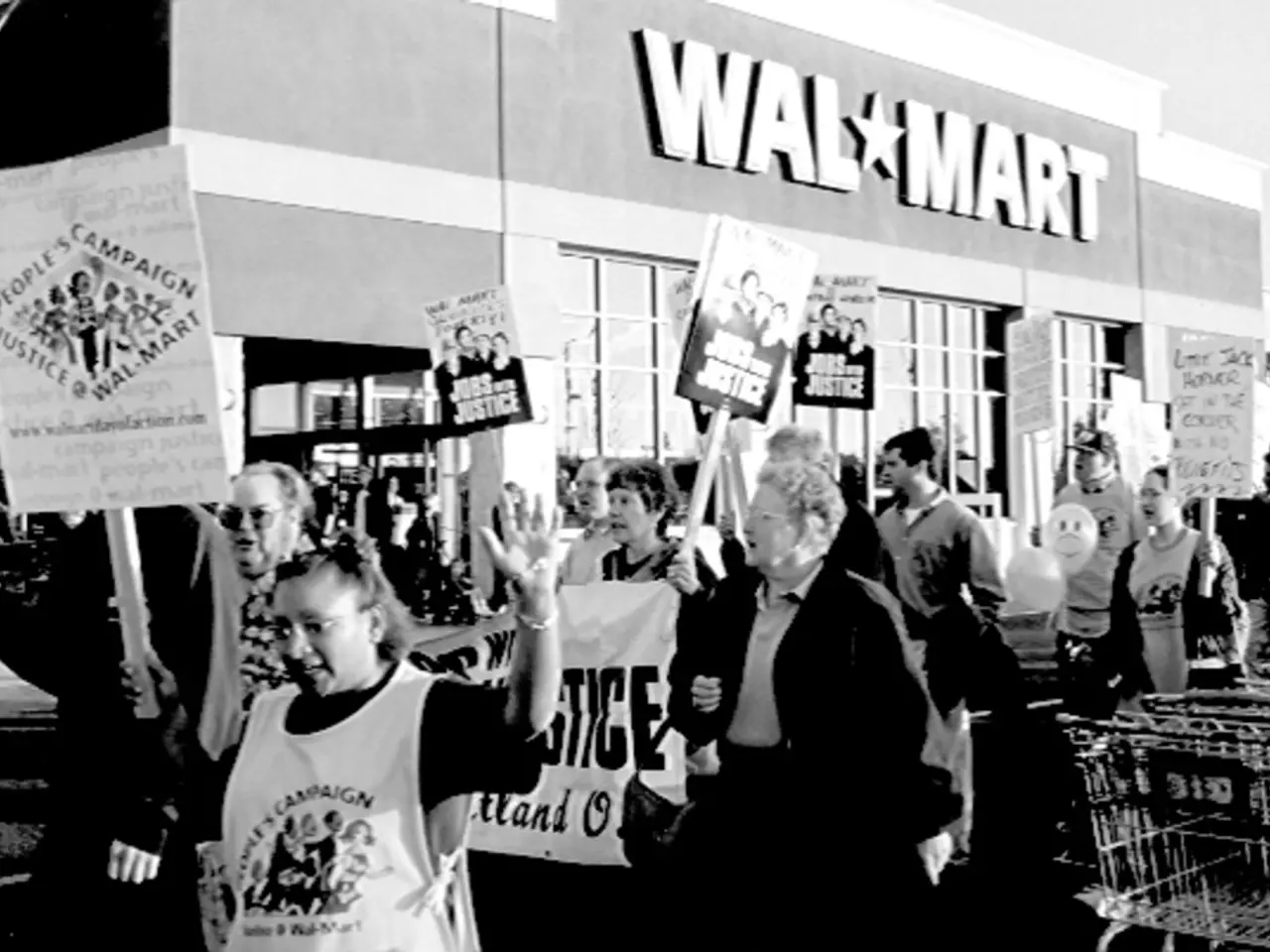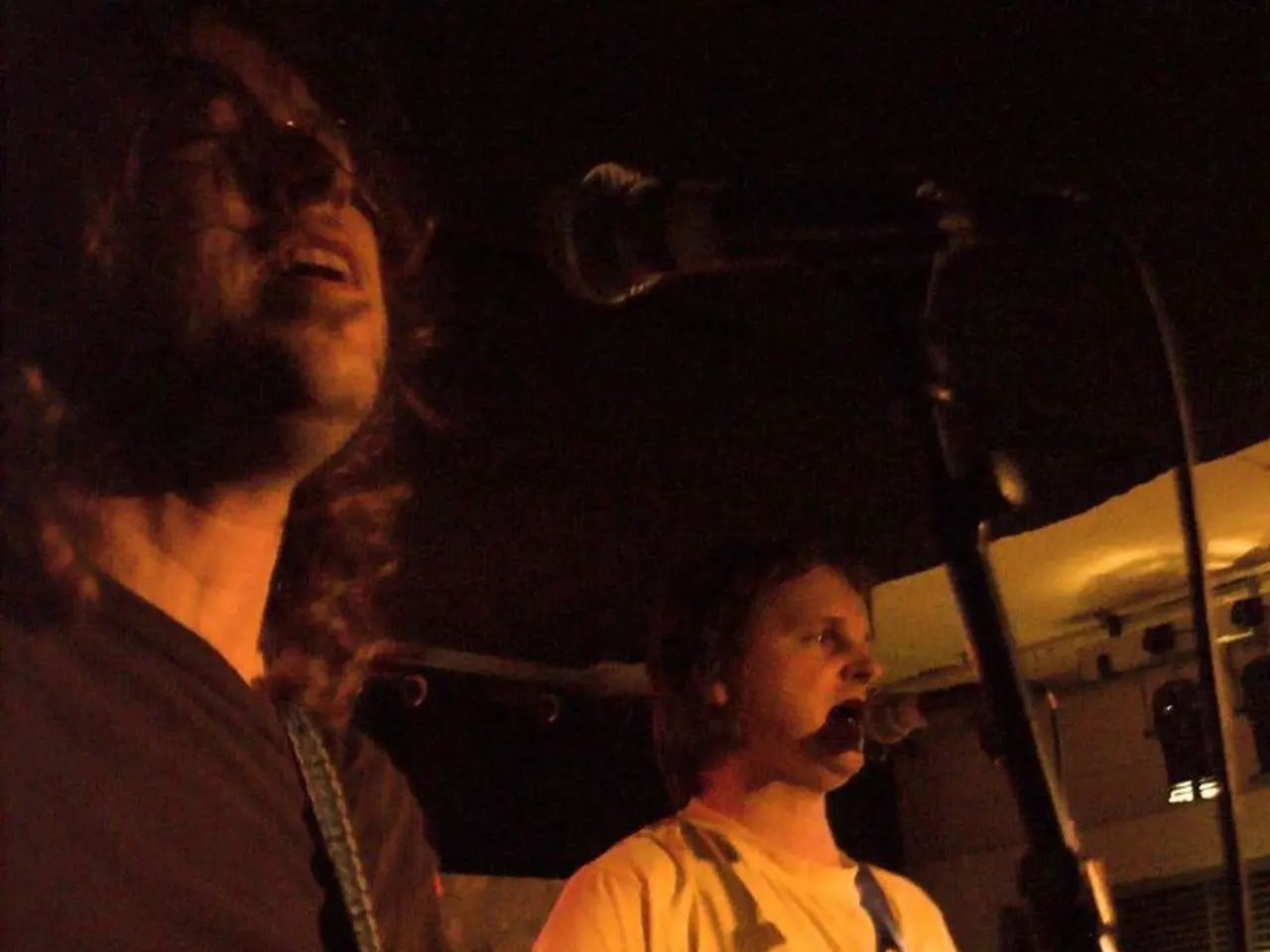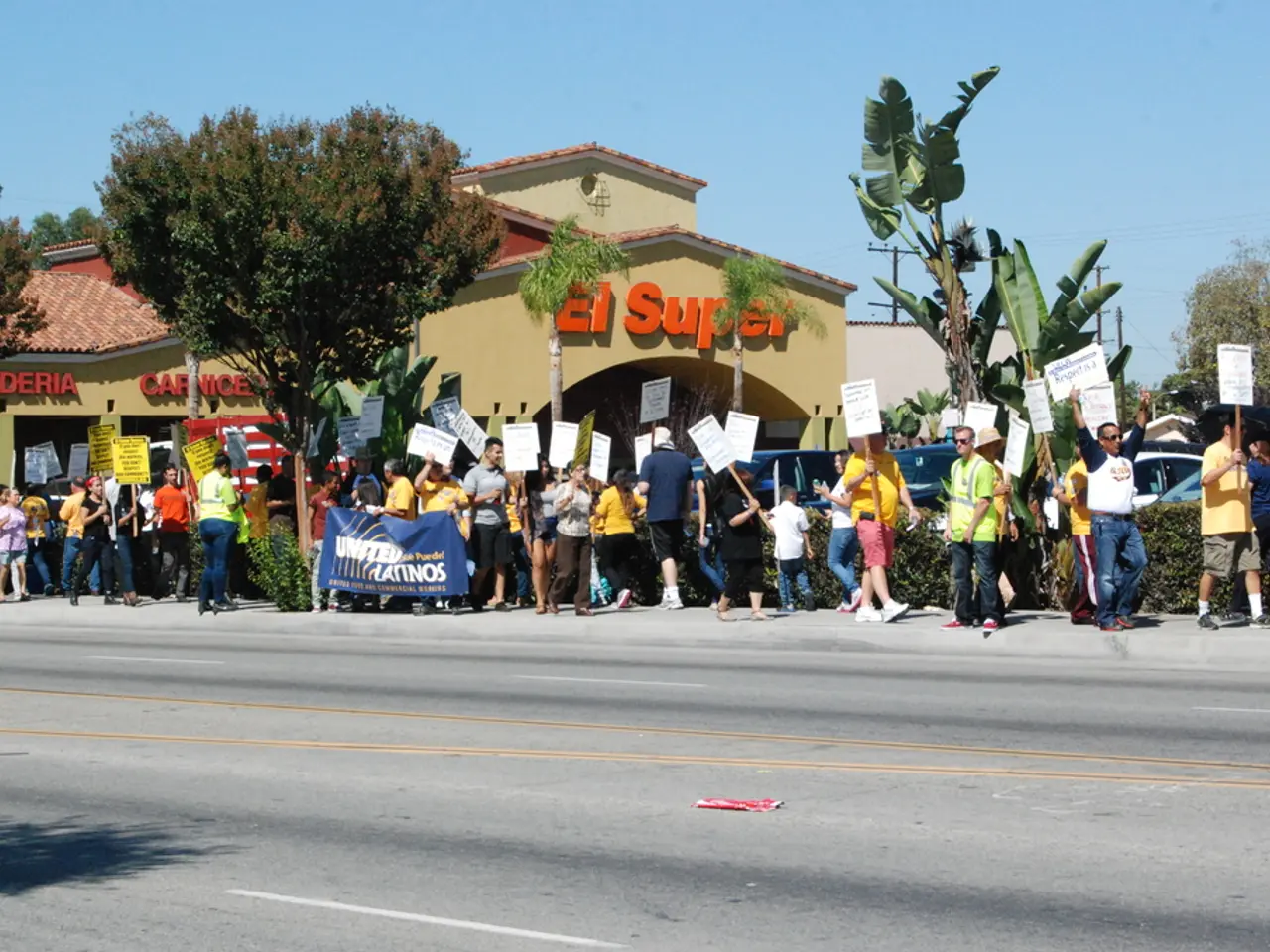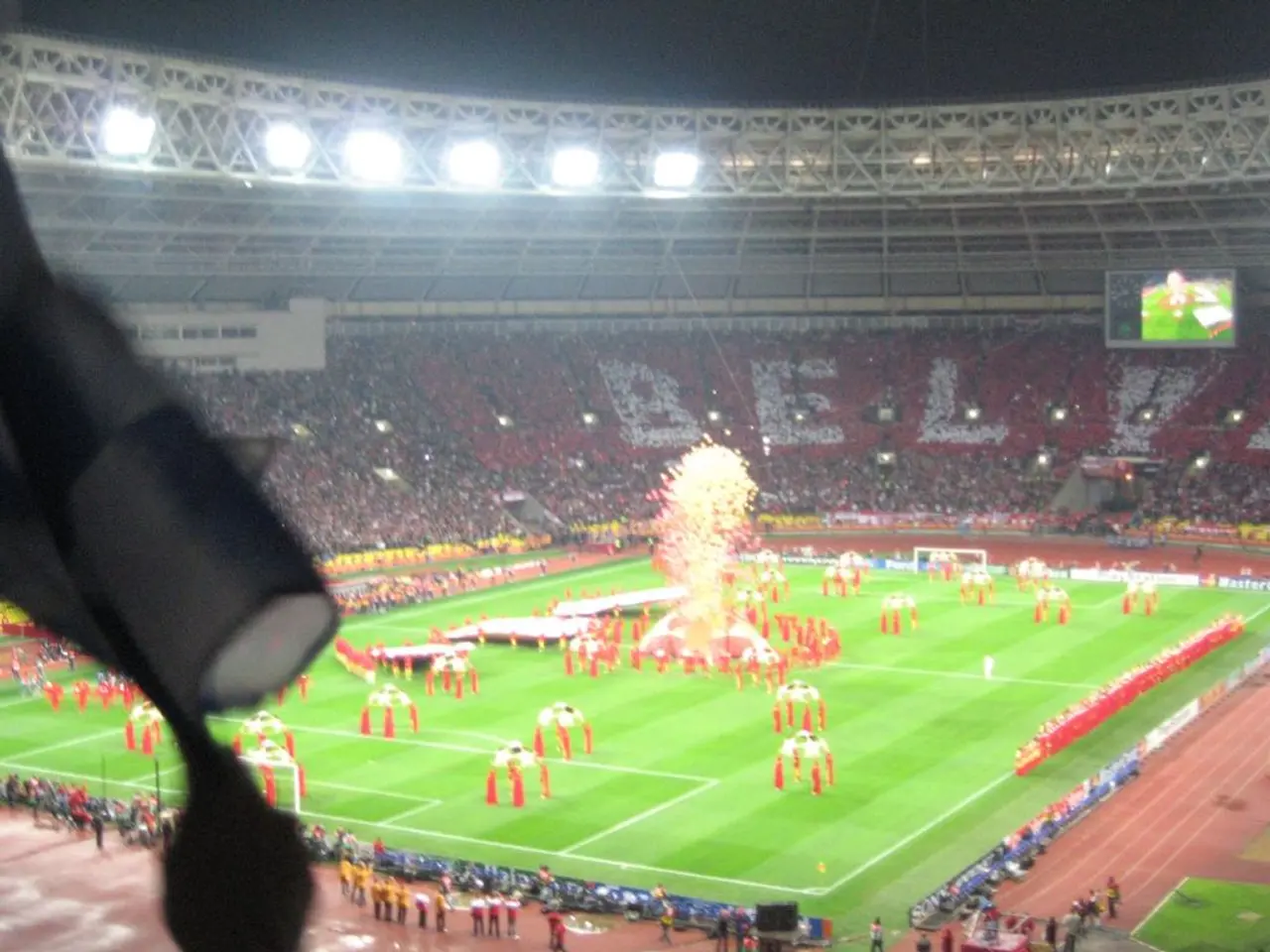Riot against gentrification in Mexico City's capital leads to wide-spread international dissatisfaction over the issue
In the heart of Mexico City, a protest on July 4th sparked a global conversation about urban policy, inequality, and gentrification. The demonstration, primarily focused on rising rents and housing unaffordability in trendy neighborhoods like Colonia Roma and Condesa, saw longtime residents expressing opposition to social displacement caused by gentrification [1][5].
During the protest, participants voiced their frustration against foreigners, particularly Americans, with chants such as "Fuera Gringos!" ("Gringos out!") and signs targeting U.S. residents and companies seen as contributors to the problem. This stirred controversy, as slogans echoed sentiments of anti-immigration and xenophobia, although some protesters and groups denied this was their intent, emphasizing that their struggle was against "the rich" and exploitative government policies rather than foreigners per se [2][4][5].
The protest also reflected broader anger over government failures to regulate housing markets and the promotion of Mexico City as a destination for foreign digital nomads and investors. Critics accused local authorities of prioritizing foreign capital and tourism profits over affordable housing for residents, fueling displacement and social tensions [4].
In the immediate aftermath, there were instances of violence including broken storefronts, looting, and hostile graffiti aimed at foreigners. However, later marches, such as the July 27 event, proceeded peacefully without significant incidents [1][2].
Internationally, the movement has resonated beyond Mexico City, especially around issues of housing rights and anti-gentrification activism invading political and social discourse [2][5]. While the protest occurred on U.S. Independence Day and targeted American presence symbolically and rhetorically, there is no direct evidence of official or widespread diplomatic reaction.
The protest has highlighted the complex intersection of migration, economics, and identity in a rapidly globalizing world. It has brought attention to urban policy and inequality issues in Mexico, reigniting debates about urban policy and inequality [2][5]. As of now, the Mexican government has yet to issue a formal response.
Meanwhile, in Pottsville, Pennsylvania, Schuylkill County Democrats staged a protest in Pottsville's Garfield Square, echoing similar concerns about gentrification and social justice [6].
The protest in Mexico has been circulating on various platforms, including CNN Espanol, and has underscored the challenge Mexico faces: balancing openness with equity, and tourism with the rights of its own citizens [3]. The xVideo Player, with settings for speed (1x, 0.5x, 1.5x, 2x) and quality (1080p, 720p, Auto(360p)), offers a platform for viewers to engage with these important discussions.
[1] The Mexico City Post [2] CNN Espanol [3] BBC News [4] The Guardian [5] The New York Times [6] Schuylkill County Democrat Facebook Page
- The global discussion ignited by the July 4th protest in Mexico City expanded beyond urban policy, inequality, and gentrification, touching upon social-media platforms, where the event has been shared and debated.
- Despite the initial anti-immigration and xenophobic sentiments expressed during the protest, some protesters emphasized that their struggle was against "the rich" and exploitative government policies rather than foreigners per se, linking the issue of real estate pricing with political discourse.
- As the impact of the protest reverberates not just in Mexico but also in cities like Pottsville, Pennsylvania, the challenge remains for governments worldwide to balance development and tourism with the general-news concerns of affordable housing and social justice for their citizens.








